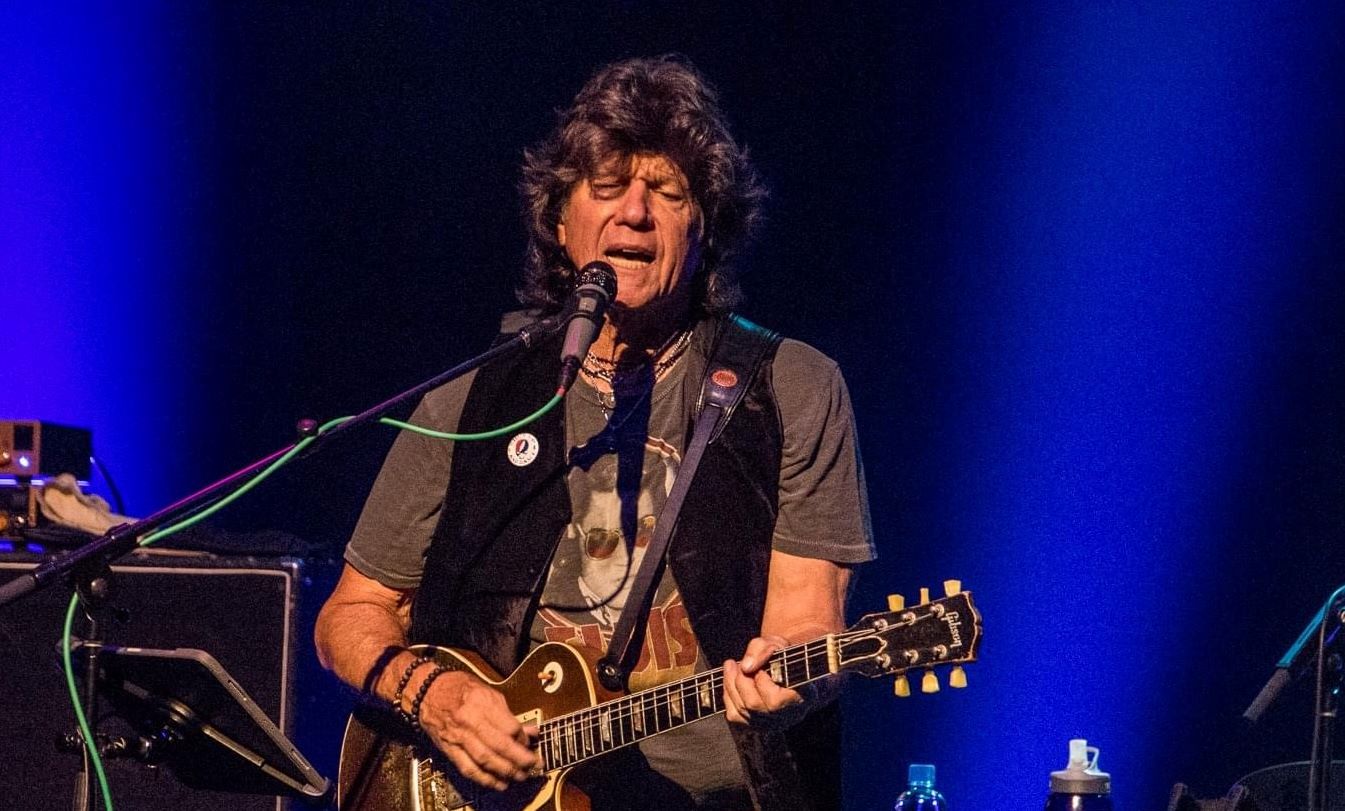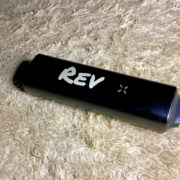Gold Header Ad
reserve your ad hereMark Karan is a musical force to be reckoned with, having collaborated with a wide range of renowned artists, including Paul Carrack, Huey Lewis and the News, Dave Mason, Denali Bramlett, and the Rembrandts. But he is probably best known as the guitarist for the Grateful Dead offshoot bands RatDog, The Other Ones, Phil Lesh & Friends, and Planet Drum.
Karan has also enjoyed various other projects, including his bands Jemimah Puddleduck and Mark Karan’s Budz, and he released a solo album, Walk Through the Fire. Karan has sat in with the Allman Brothers, Trey Anastasio, Gov’t Mule, Jackie Greene, Levon Helm, Little Feat, and many more. SKUNK Magazine had the pleasure of tapping into his touch of gray matter to find out more about the versatile artist.
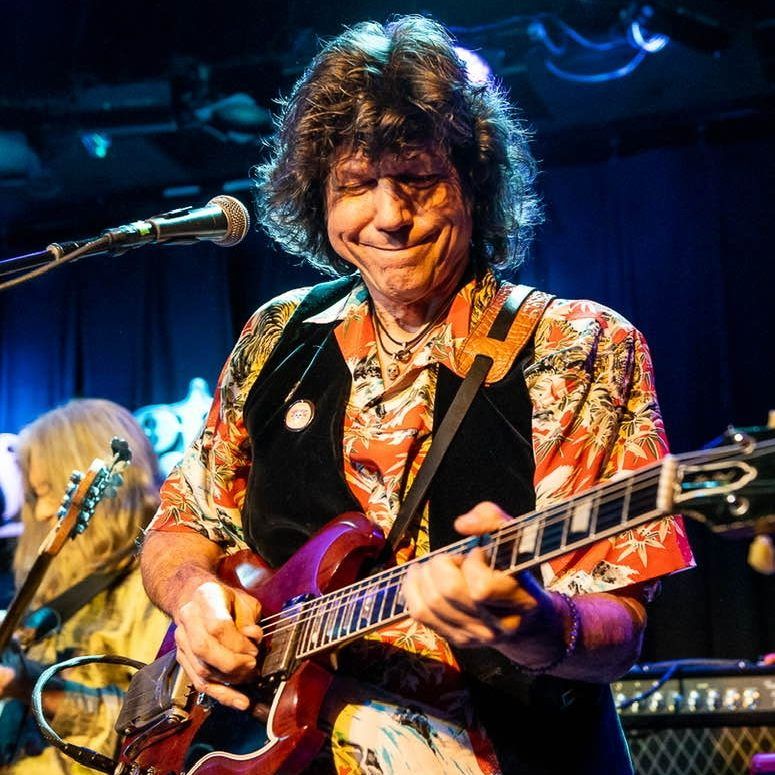
Vivian McPeak: You have an illustrious career playing guitar for various iconic performers, but you might be most known for participating in many Grateful Dead offshoot bands. The Dead and the San Francisco music community have deep roots in the ’60s and post-’60s counterculture, historically steeped in cannabis. What role or influence has cannabis had in your life, and how has the plant touched you?
Mark Karan: Musically, I find that cannabis shifts my perception in a way that helps turn off my inner editor/critic and seems to open up thought and idea pathways that I don’t encounter without the effects of good flower. And emotionally and spiritually, I feel cannabis and psychedelics can help open our minds and hearts to explore our feelings and who we are.
VM: How did you become interested in the guitar and cut your first chops as a guitarist/singer? I know you played in several early original music bands and even did some country rock, but how did you get started?
MK: My family was very musical. My actual father, my blood father, was a jazz trumpet player, but he left our family when I was about two, so that would be genetics rather than any actual influence. And then, you know, my mom was a jazz nut, so I grew up around a lot of Miles Davis, Sonny Rollins, Sarah Vaughn, Dinah Washington, and all that kind of stuff. And as a kid, I loved it, ya know. My mom would walk around the house singing it and stuff. As a teenager, I rejected it because it was my parents’ music. But I was always around music, and then I got interested in guitar because everybody was getting into guitar back then. I think I was eight or nine when I first began fussing with a guitar, so that would have made it ’63’ or ’64, and guitars were just exploding. And then, of course, in ’64, I saw the Beatles on Ed Sullivan, and that kind of stuck the nail in my coffin. I looked at the screaming girls and the long hair and shiny guitars, and I heard that music, and I went, that’s for me, and I just never looked back.
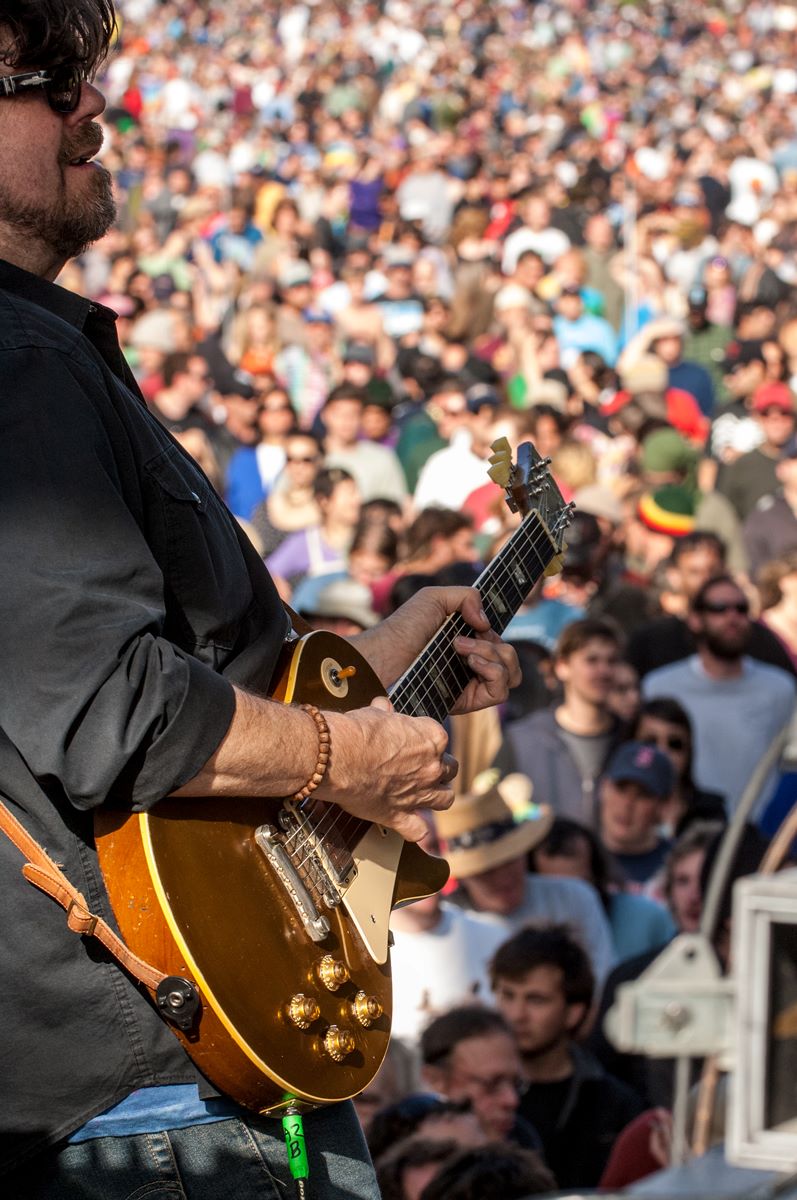
VM: Tell us about your band’s name, Mark Karan’s Budz. Is there a double entendre implied in the Budz part?
MK: Of Course! It’s also because I was bored with “so & so & friends” or “the so & so band.” Those get overused as band names.
VM: What do you look for when considering players, and what is the current lineup of Mark Karan’s Budz?
MK: I look for players that have a connection to the kinds of music and music approaches I relate most to: a broad spectrum of Americana— blues, soul, old school country, as well as indy rock, reggae, some funk… all played in service to the song and with a wide, open mind to interpreting and reinventing.
The current Budz lineup consists of Scott Guberman on keys, Anna Elva on drums, and Kevin T. White on bass. I’m trying to keep the lineup consistent so we can develop a deeper musical communication the way only a true band can.
VM: How do you prepare for a performance? Do you follow a ritual on the day of the show?
MK: I have no prep routine at all other than trying not to think too much about business and other distracting things.
VM: What kind of food do you eat on the road and backstage?
MK: It totally depends. Sometimes, there’s great catering, but at the level I usually tour these days, that’s rare. Often, there’s not a lot of choice, and it’s a turkey sandwich from the deli tray. When I can, I try to find good Indian or Thai food or real BBQ. It can be tough to eat well on tour, but I’m pretty used to that.
VM: How do you unwind after a show?
MK: Cannabis, a nosh & Netflix.
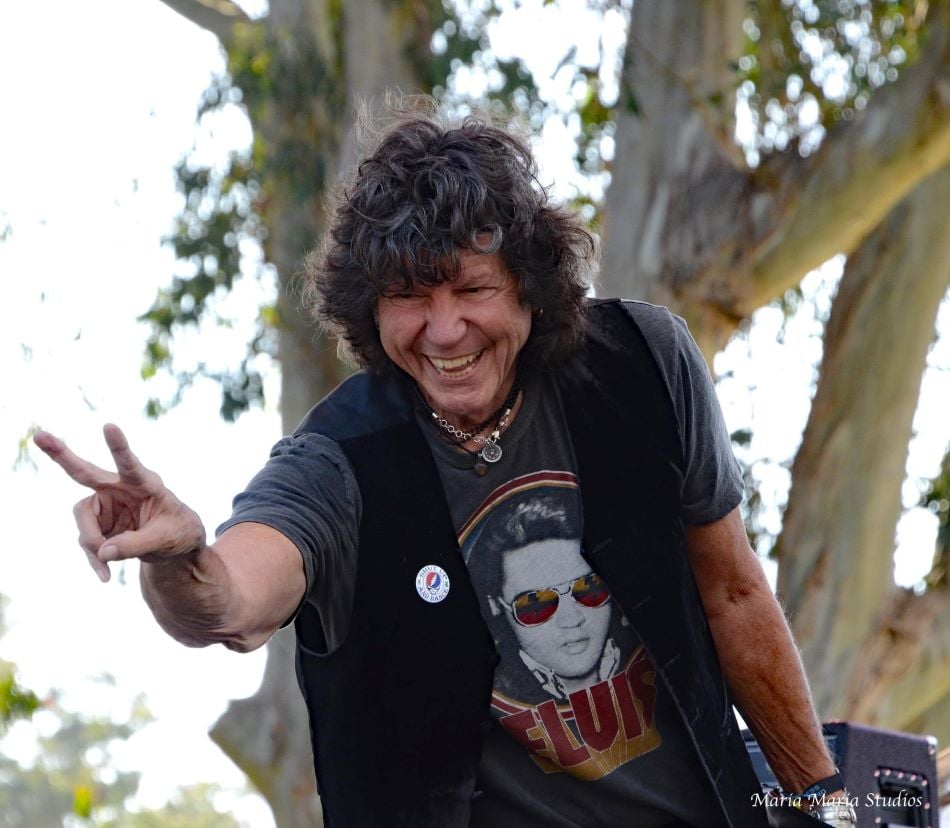
VM: Can you name a few of your primary early musical influences? What players had a lasting impact on your playing as you developed your style and chops?
MK: I’m influenced by a lot of older music, everything from 1940s and 50s jazz to lots of blues, classic rock bands, and the great singer/songwriters. Big in my listening world are Ry Cooder, David Lindley, Bonnie Raitt, the Band, Delaney Bramlett (whom I had the great pleasure of knowing and playing with while he was still alive), Little Feat, the Dead, the Allman Bros, the Beatles. So much great music!
Guitar players who influenced me and my taste in chops and flash are Amos Garrett, Ry Cooder, Albert/Freddy, etc., Garcia. And, obviously, Cipolina, Duane, Jimmy, Eric, Jeff—all our first-name classic rock icons. A bit of Clarence White, Daniel Lanois, Buddy Miller—I’m all over the map. There are too many to list them all here, really.
VM: What is on Mark Karan’s playlist these days? Who are you currently listening to?
MK: Hmm… for more current stuff, maybe Shiny Ribs, Blake Mills, Wilco, Marcus King, Tedeschi Trucks; it varies, and I always get like a deer in the headlights when asked… (laughs).
VM: What usually comes first, the music or the lyrics, when you are songwriting?
MK: Truthfully, I don’t write a lot, but if I had to say, I think the music comes more easily. Sometimes, lyrics “drop from the sky” as a gift, but that’s rare. I do better working with a co-writer like my dear friend Deb Grabien, a great songwriter and novelist.
VM: What guitar and amp are you using on stage today?
MK: In Ratdog, I had my dream rig: multiple amps, pedals in loops with a loop/patch controller, and six-plus guitars. Recently, touring, it’s mostly rental amps, a simple pedal board set-up, and a cool blue “Franken-Strat” built for me by RS Guitarworks out of Kentucky, which is a great guitar!
Locally, I’m mostly playing smaller rooms, so I use my Fender Deluxe Reverb, a pedalboard, and most often my ’62 SG/Les Paul and my ’51 Fender no-caster as my “voices.”
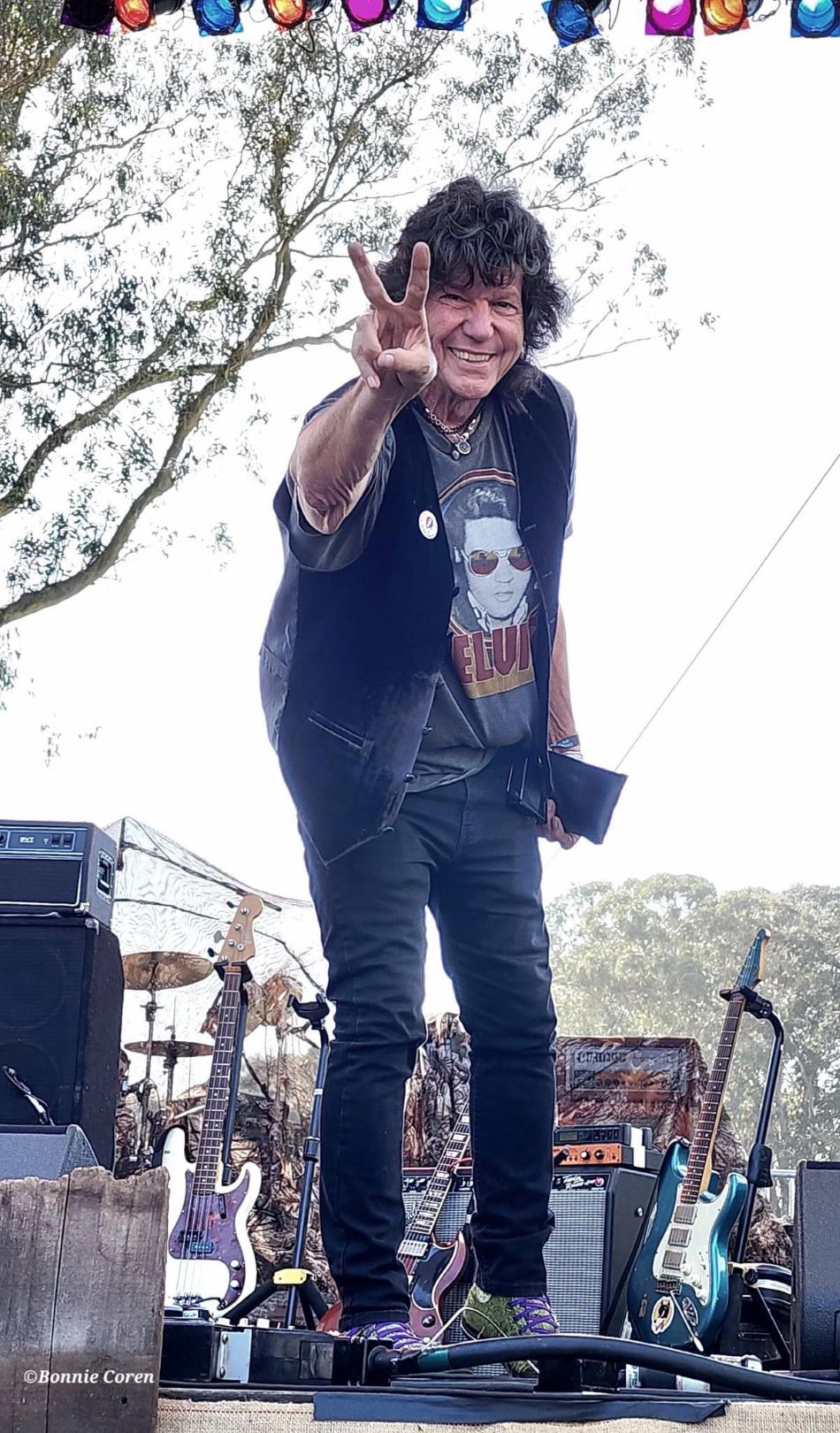
VM: Are there other cool projects you are working on we can look for in the future?
MK: Well, I’m really stoked about playing with Dave Alvin, from the Blasters, the Third Mind, etc., finally getting my second record released and continuing to play locally with my band, as well as touring with Live Dead and Brothers and the Gilmour project. And there’s always room for new and unexpected opportunities. You never know what’s right around the corner. If anyone had told me I’d be getting a call from the Grateful Dead to come play in 1998, I’d have told them they were crazy. But it happened!
VM: You have performed with many iconic artists throughout your career. You first came to my awareness because of your proficiency as a Grateful Dead-inspired player. My first Dead show was at San Francisco’s Winterland Arena in 1974. I was 16, living in L.A., listening to heavy chord-rock bands like Sabbath and Zeppelin. I liked the kind of folksy Western stuff I heard on Workingman’s Dead and American Beauty, but I did not fully get The Dead until I saw them live, which was transformative. What was your first exposure to the Grateful Dead like?
MK: Ya know, I gotta be honest with you. I don’t remember my first exposure; it was just all of a time.
VM: You’re from the Bay Area, am I right?
MK: Yeah, yeah, and I was born in ’55, so, in ’67, I was twelve. We started smoking pot at, like, age eleven because that’s what was happening back then. We couldn’t go to the Avalon (Ballroom) because you had to be eighteen, and we were all under eighteen, but we would go to the Fillmore. Also, there was a lot of stuff going on in Golden Gate Park back in those days. So, I was able to see The Dead and the Airplane and Quicksilver and tons of those fabulous bands repeatedly for free just in the Park.
The Dead thing was very, very different back then because the Dead were one of many bands that were sort of spearheading the Haight Ashbury situation, the hippie movement. And, at the time, I’m sure there were many people who did put them at the top of the heap, but really, it was pretty varied. There were people who were Dead freaks and people who were Jefferson Airplane freaks, and there were people like myself who were more into Quicksilver and Sons of Champlin. I loved the Dead; I saw them a fair bit, but my favorite two bands from that era, at that age, were Sons of Champlin and Quicksilver. So, I don’t remember when I first saw them, but I saw them a lot—between ’66’ and ’73 or ’74, somewhere in there.
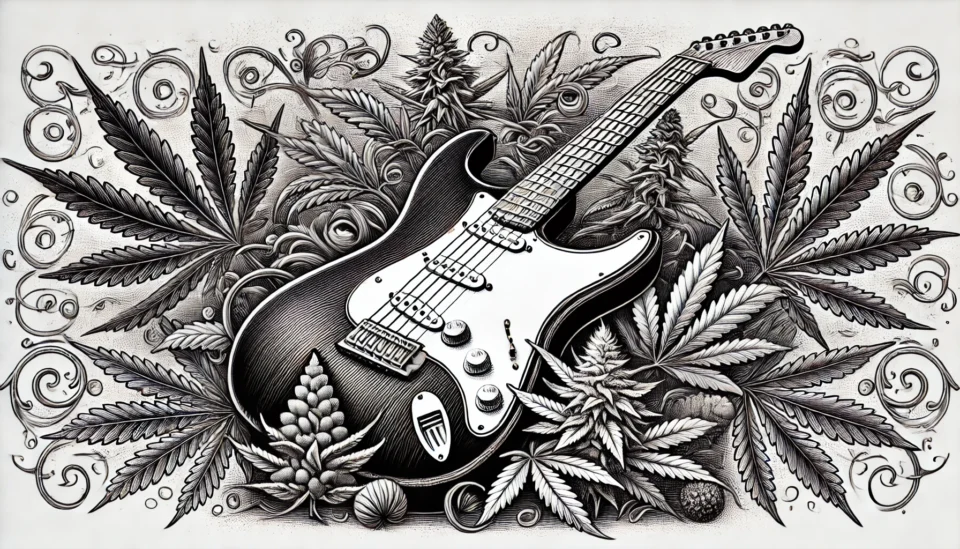
VM: Can you touch on your work with The Third Mind, featuring Dave Alvin?
MK: That was another just shocking situation. I didn’t know Dave from Adam. I didn’t know any of the people in that band. I was aware of Dave because of the Blasters, but I hadn’t really followed the development of his career into all of the wonderful Americana stuff he’d done in the following years. I just got a call out of the clear blue sky one afternoon, and it was Victor Krummenacher from Cracker and Camper Van Beethoven. He’s a dear friend of Dave’s and was the bass player for this project.
And he told me that they had done these two records as The Third Mind, that it was very improvisational, sort of classic Americana tunes reinterpreted—very improvisational based—and that David Immerglück from Counting Crows had done the records, but his commitment to Counting Crows was too strident to really allow him to be free enough to be available to Third Mind. And they decided they really wanted to go out on the road, and Victor had heard me and thought I’d be a great possible choice, and he ran it by Dave, and I guess—I was very flattered. Dave was already aware of me, and he said, yeah, very cool, let’s try and get that set up. So, we got together, had one rehearsal, and did our first run of shows. It was all kind of done over the phone. I did many dog walks with my iPhone in my ears, getting my Third Mind material so I could soak it in.
VM: Mark, you’ve worked with many of the Grateful Dead family. While there have been artists and bands that have achieved superstar and even cult worship status, I cannot think of anyone who has generated anything quite like the Grateful Dead phenomenon. The Dead are in a category of their own in terms of enduring fan dedication, iconic imagery, and the cultural association of the Grateful Dead. You mentioned that, at the time, there were so many other big bands. Somehow, the Grateful Dead emerged to carry the mantle of the 60s counterculture. As someone who rubs elbows with the players and engages directly in the music, why do you think the Dead inhabits such a special place in the history of music? What do you think is the secret sauce that defines the Dead Zeitgeist?
MK: I would not even attempt to hazard a guess (laughs).
VM: Ha, ha, that’s fair, man.
MK: That’s a unique phenomenon. I think it’s deserved; I mean, certainly, they’ve got some brilliant songwriting going on.
VM: But so do so many other acts.
MK: Exactly. And let’s face it, two-thirds of their songs were cover songs. You know, I mean, they have a lot of originals, but there was a lot of “Me and My Uncle,” there was a lot of “Big Iron,” there was a lot of, I’m naming off country tunes, but there were other—you know—a lot of the Dylan stuff. There are, like, hundreds of Dead songs that are covers, so I don’t think it was the songwriting. And the playing, you know, I think it’s brilliant, but it’s kind of like what Jerry said; it’s like black licorice; it’s not for people who have traditional musical tastes. It’s an acquired taste.
A lot of my pro musician friends, especially some of the ones I was playing with in Los Angeles who were from Texas and very steeped in super-authentic R&B and blues stuff, couldn’t get past what they saw as sub-par singing; they couldn’t get past grooves that “weren’t tight.” So, for them, it is just never going to be their music. But for those of us who love it, I think the honesty and the authenticity come through—the emotional connection and freshness of creativity in the moment; the fact that anytime you hear a song, it’s not gonna be the same as the last time you heard it, which, by the way, is our philosophy with Third Mind as well. I think all those things add up, and then I think they were willing to be those rag-tag guys touring the country constantly. But I don’t know that any of that explains the phenomena.
All photos courtesy of Mark Karan.
Vivian McPeak is a Seattle-based social justice activist, media personality, and writer. Vivian spent nearly three decades as the president of Seattle Events, a Non-Profit Organization, producer of the Seattle HEMPFEST®, the world’s largest annual cannabis policy reform rally. The recipient of the High Times Magazine 2012 Lester Grinspoon Lifetime Achievement Award and DOPE Magazine 2016 Emery Award for lifetime achievement, in 2016 Vivian was named one of the “50 Most Influential People” by Seattle Magazine. Vivian has appeared on numerous television and cable news networks, including FOX News, CNN, & NBC. McPeak is the host of Hempresent, a weekly radio podcast on Cannabis Radio with listeners on multiple continents.


